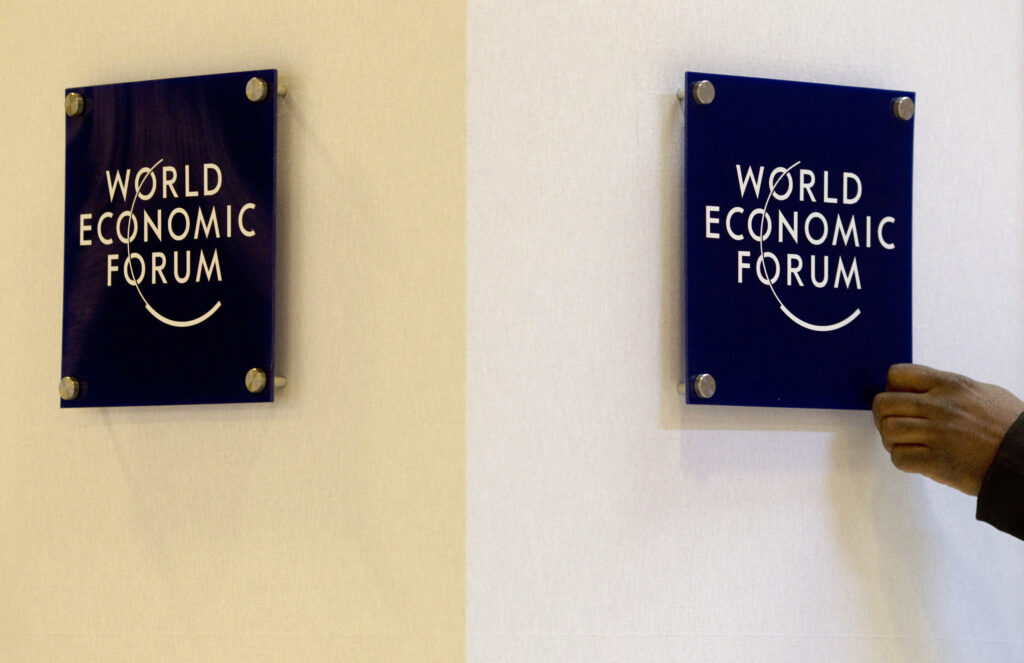World Economic Forum and Partners to Develop India’s First Zero-Emissions Road Freight Cluster

|
Listen to this story:
|
- Road freight demand in India will be second largest in the world in the coming decade.
- The World Economic Forum’s Moving India initiative is bringing business and government together to introduce India’s first zero-emission road freight cluster, to be be implemented along the west coast of Gujarat and Maharashtra.
- As part of the initiative, businesses will deploy over 550 zero-emission trucks in the cluster within the next 18-24 months.
The World Economic Forum announced during the G20 Energy Ministers’ meeting the launch of India’s first zero-emission road freight cluster initiative in an effort to reduce the country’s greenhouse gas emissions.
The timing of the initiative is crucial, especially as road freight demand in India is set to become the second largest in the world in the coming decade. A transition to zero-emission trucks can lead to 2.8–3.8 gigatons of cumulative CO2 savings through 2050, which is equal to or greater than India’s entire economy-wide annual GHG emissions today.
Supported by India’s Ministry of Ports, Shipping and Waterways and under NITI Aayog’s e-FAST India program, Moving India brings together government and the private sector to deploy over 550 zero-emission trucks in select road corridors along the west coast states of Gujarat and Maharashtra.
“Development of the zero-emission road freight cluster represents a significant step in kickstarting India’s energy transition in road freight,” said Roberto Bocca, Head of the Centre for Energy and Materials, Member of the Executive Committee, World Economic Forum. “A cluster-based approach involving multiple stakeholders and sectors can help create scale, support deployment of shared assets and infrastructure, encourage creation of vehicle supply and servicing ecosystem and inform policy through consensus.”
Gujarat and Maharashtra account for a combined GDP of $700 billion, and key ports in the states handle about 50% of India’s total volume of cargo, resulting in high-density of cargo movement in the geography. This makes the region an ideal candidate for developing India`s first zero-emission road freight cluster. Cement, metals, ports, automotive and consumer goods sectors are all areas for early adoption of zero-emission road freight in India.
“We are fully committed to driving sustainable growth. We are aspiring for carbon neutral status in 2025 and aiming for net zero by 2040,” said Karan Adani, Chief Executive Officer and Director of the Adani Ports and Special Economic Zone (APSEZ).
APSEZ has emerged as the early adopter in this space with the early adoption of battery-operated trailer trucks at its ports. Around 263 such trucks are already operational at the company’s ports in Gujarat, and another 75 trucks are deployed at its ports in Tamil Nadu. This deployment is in line with the company’s strategy to electrify most of its port equipment and power it using renewable electricity.
See related article: World Economic Forum Report Outlines Roadmap to Fast-Track China’s Green Hydrogen Industry
“Deployment of zero-emission trucks in and around India’s shipping ports is well aligned to India’s ‘Harit Sagar’ Green Port Guidelines,” added Sushil Kumar Singh, Joint Secretary of the Ministry of Ports, Shipping and Waterways of India. “We are keen to work with public and private stakeholders to promote deployment of zero-emission trucks for land operations at ports.”
Several challenges need to be overcome to ensure a successful scale up: shippers need to ensure the right selection of viable use cases for early deployment; vehicle manufacturers need to ensure availability of right-sized and right-priced zero-emission medium- and heavy-duty trucks; shippers and vehicle manufacturers need to work closely with logistics service providers to ensure financeable cashflows and technology guarantees; and clarity is required on the policy roadmap and support for zero-emission road freight vehicles and infrastructure.
Deployment under the zero-emission road freight cluster will provide necessary demand and scale to enhance competition, lower costs, and bring policy clarity to scale up deployment.
The Moving India initiative is supported by both the private and public sector in India:
“We are pleased to witness the unwavering dedication of prominent enterprises towards the widespread adoption of zero-emission trucks,” said Sudhendu Sinha, Adviser, Infrastructure Connectivity – Transport and Electric Mobility, NITI Aayog. “This commitment closely aligns with the government of India’s objective of fostering a cleaner and more efficient road freight system within the nation. At NITI Aayog, we have initiated the e-FAST India program to provide comprehensive support for the implementation of zero emission road freight solutions across India. Under e-FAST India, we will work with the private sector to facilitate the smooth and successful early deployment of these sustainable technologies.”
“India is the second largest cement producing country in the world, with cement plants spread across the country,” noted K.C. Jhanwar, Managing Director, UltraTech Cement Limited. “Cement sector can provide an ideal use case for early adoption of zero emission trucks. At UltraTech Cement, we are committed to evaluate all means to reduce our emissions and environmental footprint. We see large scale deployment of zero emission trucks and LNG/CNG vehicles as the next key initiative to make our operations more sustainable.”
“We are working with India’s leading businesses who are committed to reduce their Scope 3 emissions,” said Vineet Agarwal, Managing Director, Transport Corporation of India. “As a leader in this domain, it is incumbent upon us to provide zero-emission road freight solutions to the customers that require such solutions.”
“While we continue to work on improving our Scope 1 and Scope 2 emission intensity, this initiative will support our objectives in reducing Scope 3 or value chain emissions,” added Satish Sharma, President, Asia Pacific, Middle East and Africa (APMEA), Apollo Tyres. “We need to improve efficiency of the supply chain, enabled by digitalization, to make adoption of zero-emission vehicles more viable.”










